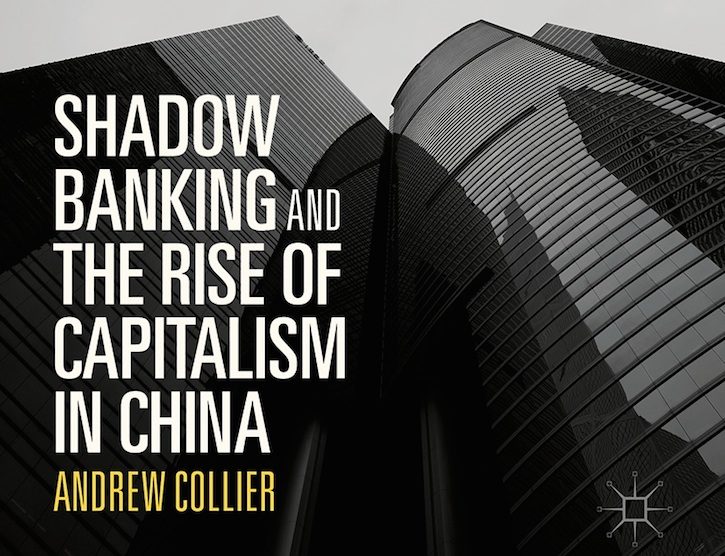
In a controversial new book, Shadow Banking and the Rise of Capitalism in China, Andrew Collier, a Hong Kong-based financial analyst and former president of the Bank of China USA, describes the growth of shadow banking—capital that is distributed outside the formal banking system—in China. From small lending shops to online credit to giant state owned banks called trusts, shadow banking has grown to nearly half of all China’s annual RMB 25 trillion ($4.1 trillion) in lending today. The shadow banks are barely regulated and highly risky, raising concerns that overextended lending could lead to a financial crisis. Collier, however, argues that Beijing has the wherewithal to handle future financial challenges.
You make the case that shadow banking has allowed China’s market economy to flourish without directly challenging state control. How?
There are many forms of shadow banking. Some threaten state control and some don’t. An example of how state control is strengthened through shadow banking can be demonstrated in the fiscal system of local governments. The state, through the China Banking Regulatory Commission, regulates credit to favored institutions such as State Owned Enterprises (SOEs) through the SOE banks. In addition, it attempts to control economic bubbles through restrictions on mortgage loans. However, it also quietly allows local government-funded companies to continue to receive financial support through the private, shadow banking market. This flow of capital is essential to the fiscal stability of local governments, because it helps to prop up the property market and land sales, a key source of government revenue. However, it doesn’t directly challenge capital flows to SOEs.
Some financial analysts worry that the shadow banking system, with such high debt levels, could lead to a financial collapse in China. Why do you think that won’t happen?
First, by global standards, China’s central bank has the ability to increase debt substantially since the central government debt is relatively low, at around 40% of GDP. Second, the hierarchy of banking (and of money in general) in China means that there are going to be very well protected financial intermediaries, such as the state banks and the central bank. At some point, Beijing will have to make hard choices about which institutions – financial or corporate – will be allowed to fail. Third, my personal view is there is a highly interactive political system in China that allows Beijing to monitor financial “hot spots” and prevent—or at least moderate—crises. This feedback loop occurs between provincial governments, local bank branches, and the State Council and banks in Beijing.
You argue that the “future is bright for shadow banking in China.” Given the risky lending that has gone on, how do you make that case?
It is an exaggeration to say that the future is “bright.” What I mean is that the genie is out of the bottle in that people have discovered they have ways to manage and invest their money. A host of financial institutions acting at the edges of the official credit system (including banks and investment banks) has sprung up—which, as Johns Hopkins University scholar Kellee Tsai notes, constitute a “parallel political economy.”
However, I do think there are serious risks in the shadow system, and many households, financial institutions, and banks are heavily indebted as a result of it. China’s high debt is likely to lead to a collapse in asset values, particularly in the property market, which may cause defaults in loans from bank and shadow banking sources. Most vulnerable are the individually owned wealth management products, along with some smaller banks that have relied on them to build up their capital base. There is very little oversight by the lenders, financial intermediaries, and regulators over these products, which means no one is accurately calculating the risks of these trillions in investments.
Also, there are complex linkages between financial intermediaries (including bank guarantees and cross-ownership) that will make an economic downturn quite messy. Nonetheless, China has learned an important lesson of capitalism – almost inadvertently. Chinese citizens have learned that they can allocate their wealth according to free market principals. However, the second lesson – failure – has yet to be learned, as widespread defaults have not yet occurred. In the future, as defaults grow, investors will become more cautious about where they put their savings, leading to better institutional controls and moving shadow banking back into the formal system.




